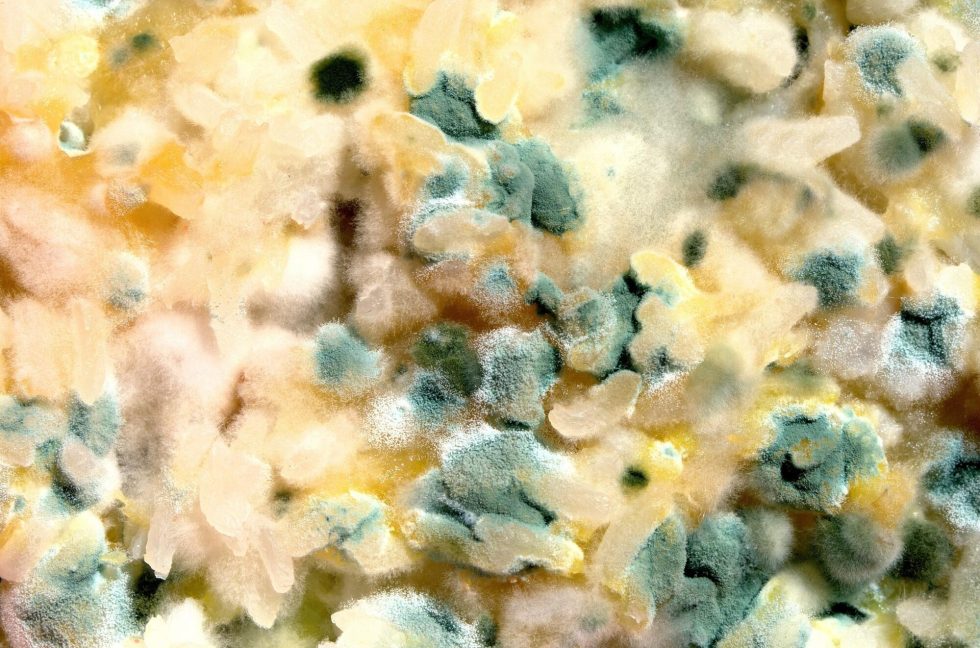Knowing when to hire professional mold testing is key to safeguarding your home and protecting your family’s health. Hiring certified mold assessors when you notice visible mold, musty odors, or health concerns helps uncover hidden growth and guides effective remediation.
The U.S. Census Bureau, as cited by Verified Market Reports, projects the mold testing industry to grow at a 7.3% CAGR over the next five years. The growing awareness of mold’s health risks and improved testing technology are key factors driving this growth.
Professional mold testing doesn’t just identify what’s there; it ensures your home remains a haven. Explore the key signs that indicate it’s time to hire a specialist for mold testing in your home.
What Does a Professional Mold Test Look Like?
Professional mold testing is a proactive step toward effective home mold prevention. It’s a science-based process conducted by certified inspectors to detect, measure, and analyze mold in a property.
A professional mold test involves specialized tools, laboratory analysis, and a clear interpretation of the findings. It aims to identify the type of mold, the level of contamination, and any potential health or structural risks.
Professional mold testing services include:
- Air sampling
- Bulk material testing
- Thermal imaging
- Surface sampling
- Visual inspections
- Diagnostic testing
A professional mold test is more accurate and reliable than a DIY test. It also enhances the mold removal process by encouraging a comprehensive property assessment.
How Much Does Mold Testing Cost?
Some mold testing services may include hidden costs, such as fees for lab analysis, additional samples, or detailed reports. Request a breakdown of the cost to avoid overpaying or being charged for unnecessary tests.
Costs vary based on factors such as:
- The size of your home
- The testing method used
- Your location and accessibility
- Extent of mold growth
7 Signs You Need Professional Mold Testing
When left unchecked, mold gradually weakens wood, drywall, and insulation, leading to costly repairs. Professionals like Elite Mold Services, Inc. in Orlando, FL, conduct thorough mold testing to detect and resolve issues early. We also provide expert guidance on the best remediation or prevention steps for your specific situation.
1. Unexplained Respiratory Issues
Mold spores irritate the respiratory tract and trigger immune responses when inhaled. Certain molds produce toxic compounds known as mycotoxins, which can damage lung tissue and disrupt normal respiratory function.
Signs of mold-related respiratory issues in homes include
- Chest pain or tightness
- Trouble breathing
- Nasal congestion
- Persistent coughing
- Night sweats
- Fever
2. Visible Mold Growth
Visible mold can appear quite differently depending on its type, location, and cause. It often appears as black, green, or brown spots on:
- Bathroom tiles
- Window sills
- Damp drywall
Visible mold on leather, wallpaper, or wood often looks like white or fuzzy patches. This growth typically indicates the presence of hidden colonies and potential indoor air quality issues.
3. High Humidity Levels
High humidity levels cause condensation on windows and walls. Condensation creates damp spots where mold spores can easily settle and grow.
High humidity allows moisture to penetrate materials such as:
- Wood
- Paint
- Wallpaper
Over time, this weakens them and creates a hidden breeding ground for mold.
4. Persistent Musty Odors
Mold releases toxic gases during growth and metabolism, often creating strong and unpleasant odors. Musty odors often come from mold spores that spread through the air. Mold feeds on organic matter, such as wood and drywall, and releases chemical byproducts of decay that create musty odors.
5. Discoloration and Stains
Mold colonies on walls, ceilings, and floors release pigments that discolor these surfaces. Black, green, dark gray, or yellow patches form where there are mold colonies. Professional mold inspection services can help detect and address these issues early, preventing them from escalating.
6. Allergy-Like Symptoms
Inhaled mold spores trigger the immune system in sensitive individuals, leading to an overreaction. These spores and mycotoxins can also irritate the skin or cause an allergic contact dermatitis. Common symptoms of allergic reactions from mold exposure include:
- Wheezing
- Runny nose
- Skin rash
- Eye irritation
- Coughing
- Headache
7. Recent Water Leaks
Leaks create damp environments that provide ideal conditions for mold spores to grow and multiply. They also increase indoor humidity in enclosed areas, such as crawl spaces. Water from leaks can soak into organic materials, allowing mold to quickly colonize them.
Frequently Asked Questions
Which hidden locations in homes commonly hide mold growth?
Mold always thrives in damp, poorly ventilated, and dark spaces. Some common hidden places where mold often grows include:
- Beneath the carpet
- Behind walls and wallpaper
- Inside chimneys and wall cavities
- Inside HVAC systems and ductwork
- Behind cabinets and appliances like washing machines
Do air purifiers help with mold?
Yes, air purifiers can help with mold, even though they don’t eliminate mold problems on their own. They capture airborne mold spores before they settle and grow. Some air purifiers use UV-C light or ionization to disrupt mold spores, limiting their reproduction and harmful effects.
Can my phone detect mold?
Your phone cannot detect mold spores directly, the way a lab test can. However, phones with high-resolution cameras can capture close-up photos or videos of suspicious mold spots on various surfaces. Phones can also connect via Bluetooth or Wi-Fi to external monitors that detect mold-related VOCs or musty odors.
What are the three stages of mold toxicity?
The three stages of mold toxicity are:
- Initial or early exposure
- Moderate or advanced exposure
- Long-term or severe exposure
Early exposure subtly affects the brain, respiratory, and immune systems. It irritates mucous membranes and the gastrointestinal tract.
Prolonged exposure can cause respiratory problems, nausea, and neurological or systemic effects, including heart palpitations. Severe exposure increases the risk of serious complications like:
- Organ damage
- Cancer
- Hypersensitivity pneumonitis
- Blindness
- Memory loss
Professional Mold Testing: Protecting Your Property and Health
Mold is a threat to your health, comfort, and property value. It often appears as a musty odor, visible stains or discoloration, or unexplained health symptoms.
Since 2006, Elite Mold Services, Inc. has provided professional mold testing and inspection services, ensuring peace of mind for Central Florida residents. All of our inspectors hold Florida state licenses as certified mold assessors.
At our core, H.E.L.P embodies Health, Empathy, Learning, and Professionalism in everything we do. Get in touch to schedule mold inspection services.

